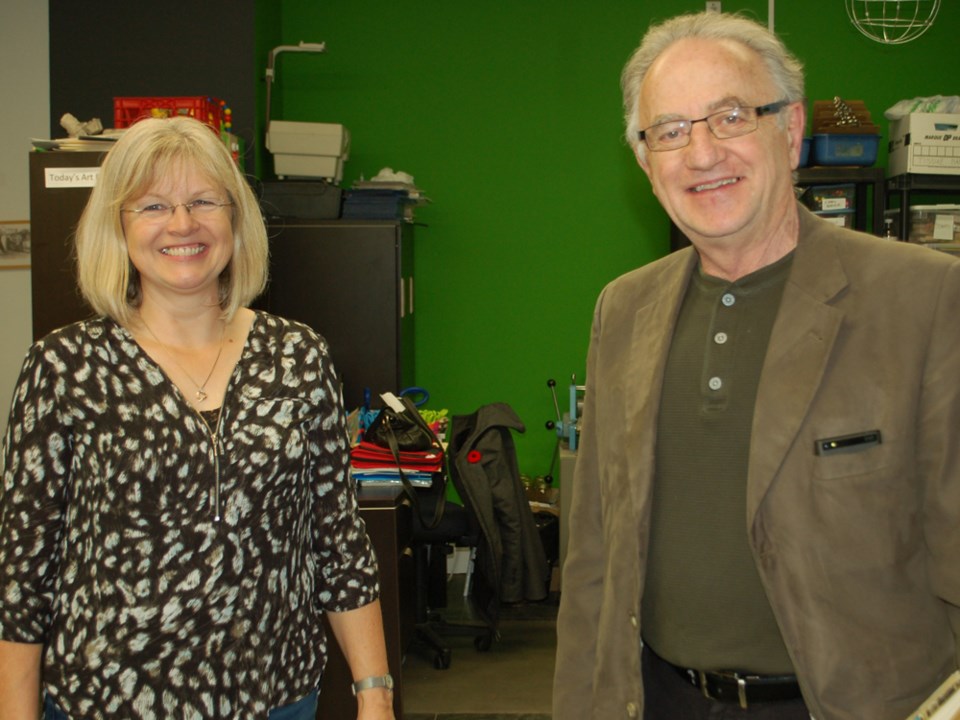All news reporters and columnists learn early on in their careers, there is always a story behind the story they are telling.
Author Dale Eisler, a former newspaper reporter and columnist was successful in telling both stories in his historical fiction rendering of Anton, a young boy, his friend and the Russian Revolution.
Speaking to about 30 members and guests of the Estevan and Area German Friendship Club on Nov. 10, Eisler explained that the idea to relate a version of this, not so well-known, part of global history came from his mother, the youngest in a large family, and who, at the age of four, saw her father executed by the Bolsheviks, before escaping with her mother and siblings to Canada.
As a reporter, Eisler said he couldn’t let the story go untold, but “I’m sorry I didn’t pursue it earlier,” he told his audience, referring to his novel, which was published in 2010 and is now in its second printing.
“Mother would talk about this traumatic event, but she would just get started and then the emotions would take over, she would cry and go quiet,” he said.
So his interview circle expanded to the aunts and uncles who provided a bit more insight into that tragic July 31, 1919 day. Recollection for them was also emotional and painful, Eisler explained. “But my newspaper instincts took hold. They were dying and taking the story with them.”
Eisler spent time with one uncle, Anton, or Tony as he was called in Saskatoon where he ended up settling. That’s where the name Anton came from for the book’s title. Eisler explained, many of the youthful recollections in the story, were his mother’s, but were better told by the author from a young boy’s perspective, especially since the intertwined tale includes a friendship with a Muslim youngster.
“I used to have to travel between Regina and Saskatoon a lot, so I would stop and visit with him in a long-term care home. It was not too bad, until a series of strokes made it difficult. He could hear but couldn’t speak well. I had the book published eight months before my mother died, but I don’t believe she was aware of it, since she had failed badly by that time, too,” he said.
Eisler spent time with the local club members in discussing their various backgrounds and the connections that some of them had to the Russian-German settlement(s) near the Black Sea around Odessa and how their parent’s or their own migration to Canada brought them to various regions in Saskatchewan.
Eisler said he found one official historical reference to that final day in July of 1919, where his grandfather’s murder was chronicled, noting that 11 other men from the village were executed, that same day, with bullets to the head by the horse-riding Bolsheviks.
While he served as Counsul General in Denver, Eisler said he joined a German-Russian society and gained more historical perspectives, allowing him to come to terms with his own identity, “and how I began to relate to my own granddaughters, because my grandfather was just a distant figure who died before I could get to know him.”
Eisler noted the book takes the reader through the story through the eyes and mind of a young Anton and an adult Anton with the varying thoughts derived from the journey. Young Anton and his friend Kaza build a world of their own and voices of their own, Eisler said, although the traumatic events, such as the murder, which his mother viewed from an upstairs window in their home, with horses hoofs pounding on the porch and a water bucket and ladle, used to first quench the thirst of those who then performed the executions.
“It’s raw in places, definitely adult reading,” Eisler warned his audience, “but I wanted it to be realistic and to capture an important period in history.
“The meaning of friendship, especially childhood friendship is powerful,” said Eisler who was introduced and thanked by Katharina Ulbrich on behalf of the club. The author, who is a senior policy fellow at the Johnson-Shoyama Graduate School of Public Policy at the University of Regina, and his wife Louise, spent some time socializing with the members who peppered him with several questions and provided him with information about more German-Saskatchewan connections.



